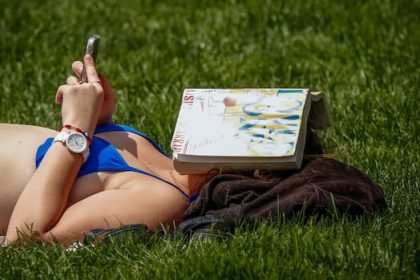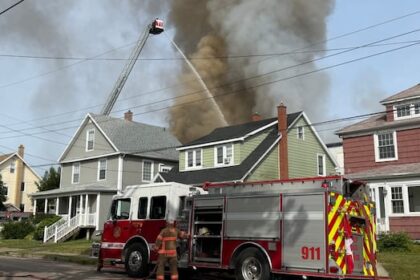OttawaIt’s officially municipal election season in Quebec, and for Gatineau residents that means the second mayoral election less than 17 months ago.Both mayoral candidates represent political parties, with no independent running for the first time in yearsLiam Baker · CBC News · Posted: Oct 03, 2025 12:05 PM EDT | Last Updated: 1 hour agoA sign directs voters in Gatineau, Que., to a polling station during a mayoral byelection on June 9, 2024. Voters will return to the polls Nov. 2. (Patrick Foucault/Radio-Canada)It’s officially municipal election season in Quebec, and for Gatineau residents that means the second mayoral election less than 17 months ago.Maude Marquis-Bissonnette won a mayoral byelection on June 9, 2024, after former mayor France Belisle abruptly stepped down that February.This year’s race pits Marquis-Bissonnette, who leads the Action Gatineau party, against Mario Aubé, leader of upstart party Team Mario Aubé. (Unlike in Ontario, municipal politicians in Quebec sometimes represent political parties.)Action Gatineau has been the city’s sole municipal party since 2013, and this is the first election in more than two decades without an independent candidate in the mayoral race.Neither mayoral candidate has a running mate, another unique element of this year’s election. Mario Aubé leads an upstart party named after him. This year’s election marks the first time in more than two decades with no independent candidate for mayor. (Michel Aspirot/CBC)What are the issues?For both candidates, the key issues are largely the same: homelessness, affordable housing, road infrastructure and municipal taxes.Aubé said his party is focused on the most basic responsibilities of the municipal government.”So the garbage, the potholes in the city, snow plowing — that’s what a municipality has to do. So right now we tax … for everything, and it’s not what we want for the citizens of Gatineau.”Marquis-Bissonnette said her party’s plan to solve the lack of affordable housing in Gatineau involves building 105,000 new residential units.”So it’s about $80 million of the municipal budget we plan to put for that specific question,” she said.Maude Marquis-Bissonnette was elected mayor in last year’s byelection, beating out former Gatineau mayor Yves Ducharme. (Charlotte Tremblay/Radio-Canada)Marquis-Bissonnette said that initiative, while also keeping municipal taxes low, will help reduce the amount of homelessness in the city — a flashpoint in Gatineau in recent years.While Team Mario Aubé also says it’s committed to addressing homelessness, Aubé said the city needs more investment from the province.Both candidates have vowed to keep municipal taxes and fees in check. In fact, Aubé said that’s what spurred him to form his party and enter the race.In December, Gatineau city council approved the largest spending increase in a decade, supported by a rise in both residential and non-residential property taxes. In March, the city also introduced a controversial commercial parking lot tax. Marquis-Bissonnette defended the tax, saying it has reduced pressure on the municipality and allowed for more funding to be put toward roads and housing.Voting for the party vs. the politicianVoters will head to the polls Nov. 2, with advance polling on Oct. 26. Given the short amount of time since the last mayoral election, former Ottawa city councillor Mathieu Fleury said it should be an interesting race — especially if the results are close.”If it’s not a majority, how do you adjust?” he asked. “Do you try to convert someone into your party, or do you compromise?”Outside of the race for mayor, 44 candidates are vying for council seats representing the city’s 19 wards. Seven of those candidates are running as independents.Fleury said under this system, some voters may have to choose between the politician and the party.”Sometimes there might be scenarios where someone likes a particular party but likes a different mayor, and then supports a different councillor,” he said. “That’s the strength of our democracy, is that people have choices.”ABOUT THE AUTHORLiam Baker is an associate producer and reporter for CBC Ottawa. He also reports and produces stories on Inuit Nunangat for CBC Iqaluit. Previously, he’s reported for CBC Yukon, CBC Thunder Bay, CBC Toronto’s Enterprise unit. You can reach him at liam.baker@cbc.caWith files from Radio-Canada
Friday, 3 Oct 2025
Canada – The Illusion
Search
Have an existing account?
Sign In
© 2022 Foxiz News Network. Ruby Design Company. All Rights Reserved.












